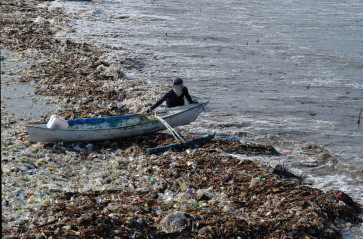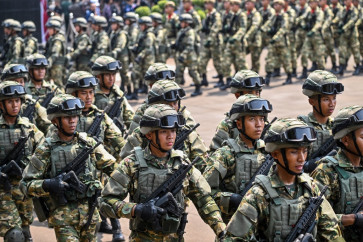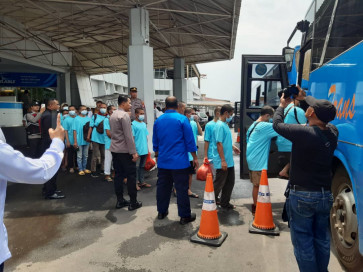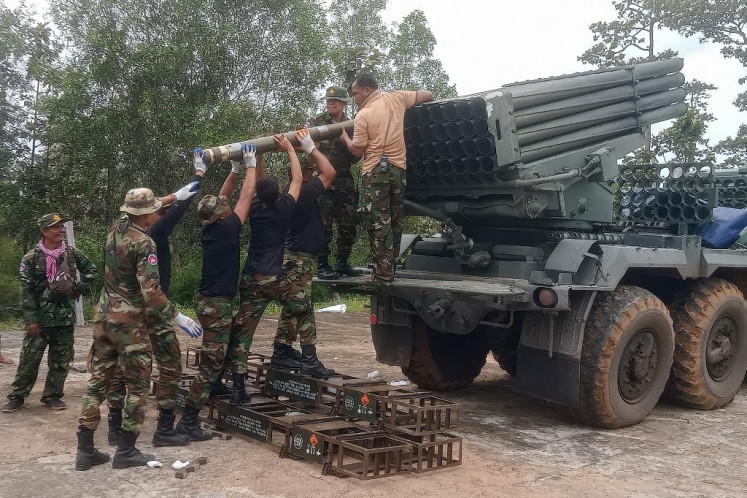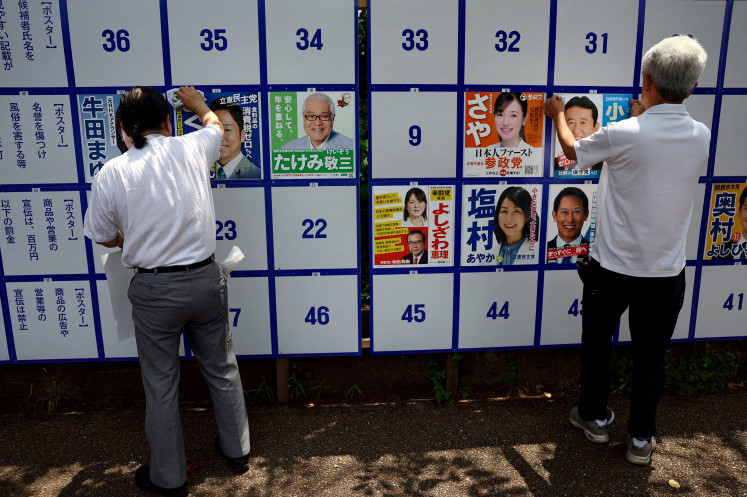Popular Reads
Top Results
Can't find what you're looking for?
View all search resultsPopular Reads
Top Results
Can't find what you're looking for?
View all search resultsAntigraft initiatives still miss their mark
Government bodies have tightened anticorruption measures, but have failed to walk the talk
Change text size
Gift Premium Articles
to Anyone
G
overnment bodies have tightened anticorruption measures, but have failed to walk the talk.
A recent survey from the Corruption Eradication Commission (KPK) found that 29 state institutions still lack transparency in the procurement of projects and in implementing ethics codes for officials.
Of eight indicators assessed in the survey, government bodies performed the worst in these two categories.
“The lowest score is for the ethics code, with a grade of just 2.93 because of poor mechanisms for the code’s enforcement. Insufficient transparency for procurement is due to poor external monitoring mechanisms,” KPK deputy chairman M. Jasin said while announcing the survey results last week.
He said that public access to information is a major indicator, with the largest average score of 8.55 due to the high degree of transparency and activity in disseminating information among institutions.
Given that Indonesia seems to be a permanent resident on the Transparency International assessment list of the world’s most corrupt nations, President Susilo Bambang Yudhoyono has proclaimed his anticorruption drive as a top policy priority.
He has issued many instructions to invigorate his anticorruption drive as well as continually reiterating his intent in many speeches.
The efforts seem to have had few impacts, as dozens of corruption cases involving state projects are continually revealed to the public.
Among the latest high-profile cases involved Muhammad Nazaruddin, a former politician from the President’s Democratic Party, who has been linked to many corrupted state projects involving various ministries. Each corruption case has allegedly involved politicians from several different political parties.
Law enforcement bodies, which are supposed to safeguard the anticorruption drive, have not performed as expected.
Previously reported to refuse provision of details regarding suspicious accounts held by top brass, the National Police have also recently admitted to receiving “meal money” from mining giant PT Freeport Indonesia to assure security at its operating site in Papua.
In the annual survey, titled “Anti-corruption Initiative Evaluation Program (PIAK)”, the KPK assessed a total of 70 units at the institutions from January to October 2011 to indicate whether or not the systems and mechanisms in these institutions were effective in preventing and reducing corruption.
The survey used eight indicators to determine whether or not these institutions have implemented effective mechanisms to prevent corruption.
They are a special code of ethics; transparency in procurement, transparency in human resources management, transparency of state officials, public complaint mechanisms, public access to information and implementation of improvement recommendations by the KPK and the Supreme Audit Agency (BPK) as well as anticorruption measures.
The evaluation comprises three stages; self assessment by each unit, verification of assessment by the KPK and determination of scores by experts and scholars. Institutions with the highest final scores are considered the most enthusiastic regarding graft prevention.
The Industry Ministry ranks first with 6.86 and the National Police second with 6.74. The Surabaya Municipal administration, Jakarta Provincial administration and Makassar Municipal administration followed with 6.57, 6.52 and 6.48 respectively.
This year’s average score increased to 4.50 from 3.43 in 2010.
The commission, however, lamented the score, saying that the scores were still regrettable.
“The score shows progress. However, it is still below the KPK’s minimum standard of 6.00,” Jasin said. “Only 15 from a total of 70 units that we surveyed achieved scores above or equal to the minimum standard.”
Jasin urged all public institutions to increase their efforts in preventing corruption.
“For example, they need to adopt and enforce a specific code of ethics in each unit or must host e-procurement and enforce external monitoring mechanisms,” he said. “Or, make a regulation on gratuities and facilitate report mechanisms in each unit. They also must allow third party to hold open and transparent human resource recruitment.”


